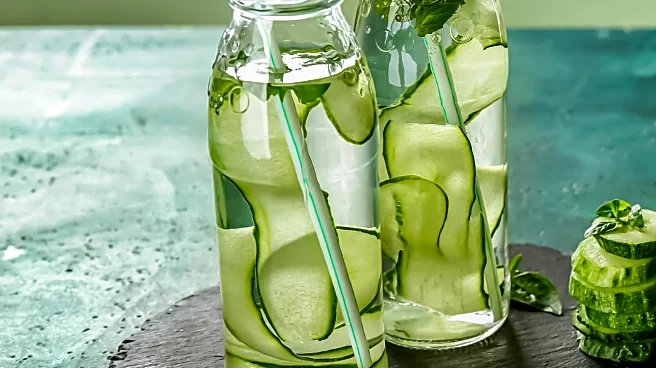What's Happening?
Dr. Sanjay Gupta addresses concerns about the safety of plastic straws in popular water bottles, such as Stanley cups, which may lead to ingestion of microplastics. Microplastics can enter the body through food and water supply, potentially carrying harmful chemicals. These particles have been found in human tissues, including arteries, and are linked to health issues like strokes and heart attacks. While Stanley straws are BPA-free, other chemicals like bisphenol S may still pose risks. Dr. Gupta suggests using stainless steel or glass straws to reduce exposure to microplastics and chemical additives.
Why It's Important?
The discussion on plastic straw safety highlights broader concerns about plastic pollution and its impact on human health. Microplastics and associated chemicals can disrupt endocrine functions and contribute to various health problems. As awareness grows, consumers may seek alternatives to plastic products, influencing market trends and prompting manufacturers to adopt safer materials. The issue also underscores the need for regulatory measures to address plastic pollution and protect public health.
What's Next?
Consumers are encouraged to switch to non-plastic alternatives, such as stainless steel or glass straws, to minimize exposure to harmful chemicals. Manufacturers may face pressure to provide clearer information about the materials used in their products and explore safer options. Regulatory bodies could consider stricter guidelines for plastic products to reduce health risks. Public awareness campaigns may be launched to educate consumers about the potential dangers of microplastics and promote sustainable practices.








